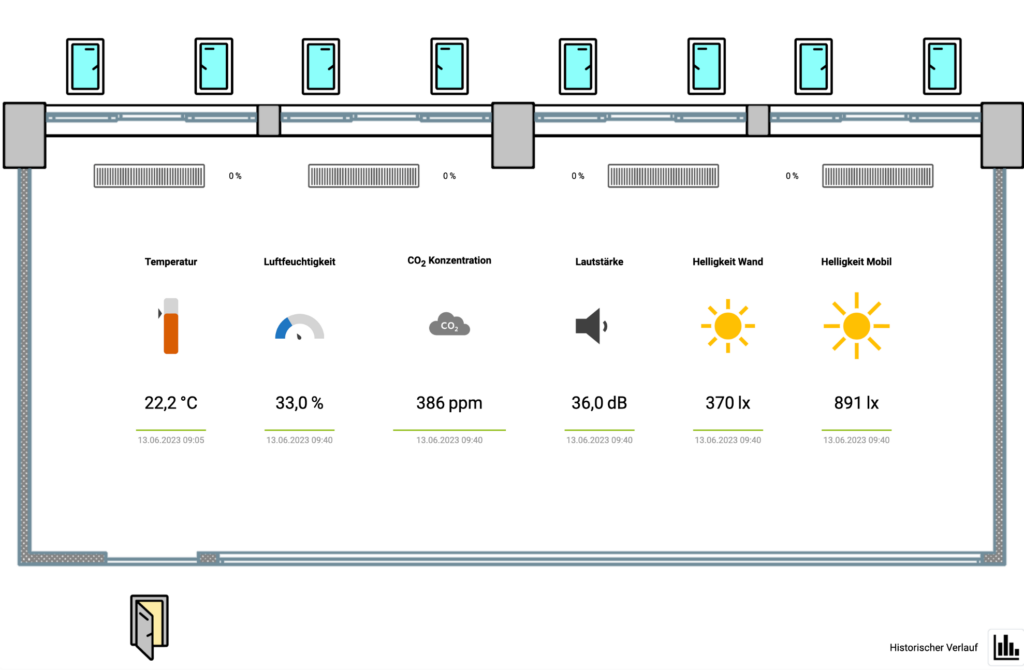Thermal Comfort as a Service: Smart-sensor-based energy management in non-residential buildings
Challenge
Non-residential buildings are responsible for 43% of building-related energy expenditure in Germany, with the majority being used for heating (Dena Building Report, 2016). Although highly complex building management solutions exist, many of these buildings are operated as a 24/7 “steady-state” with little or no management. Therefore, there is considerable untapped savings potential from “low-hanging fruits” such as reducing heating during the night or on weekends or aligning overly aggressive cooling temperature setpoints with the building occupants’ preferred comfort levels. These approaches that can improve building energy-efficiency without necessarily requiring complex and costly high-end technical solutions.
Approach
Digital technologies like smart thermostats/meters or window sensors allow building managers to identify and leverage opportunities to save energy. As a concrete case study, we have teamed up with the EnegieCampus Nürnberg (EnCN) team led by Thomas Pircher, who are deploying data loggers in approx. 70 offices on the university’s AEG campus. These sensors will collect granular data on temperature, air quality metrics, and the state of windows and doors for a period of two years or more. The project aims to analyze energy expenditures over time and to assess the effects of behavioral interventions on energy efficiency and occupant well-being. The project team further involves Senior Schöller Fellow Prof. Dr. Richard Watson (University of Georgia / Queensland University of Technology). He has previously led a very successful campus energy efficiency project that showcases the real-world energy savings potential of adjusting heating and cooling to the occupants’ preferred thermal comfort levels.

Dashboard view of the sensors in the showroom
Funding
This research is funded by the Bavarian State Ministry of Science and the Arts, in a program coordinated by the Bavarian Research Institute for Digital Transformation (bidt) and by the Schöller foundation.
Team
Leonie Manzke, Verena Tiefenbeck, project partners: Richard Watson (Digital Frontier Partners), Thomas Pircher (EnCN), Cenero.one
If you are a student who is interested in writing your thesis involving the research focus of this project, please check this page for open topics, or reach out to Leonie Manzke.